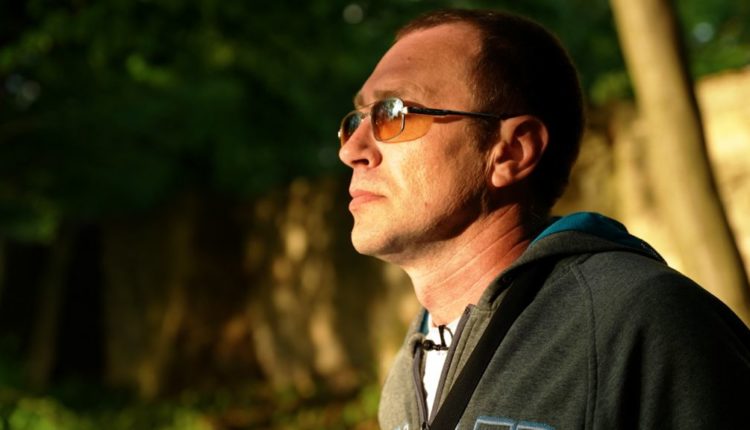Taxi driver and father of four, Ivan Skyba, found himself defending a suburban street at the start of the war. He narrowly avoided death at the hands of the Russians. All the other Ukrainian men with him were not so lucky. Prosecutors are treating what happened in the small city of Bucha as a war crime. Fergal Keane has been to meet Ivan, the sole survivor.
There is the urge to breathe out. Just one big exhalation to relieve the pressure. But Ivan knows it will be the death of him if he does. The temperature is just above freezing. Warm breath rising into cold air will create a small fog and alert the killers. They are already checking the bodies of the men they have just shot, making sure, firing a final bullet where they see any sign of life. He hears one of the Russians say: “That one is still alive!”
Ivan wonders if they are talking about him? Maybe it is one of the others. Still, he prepares himself for the bullet. He is already bleeding from a wound in his side. The other Russian says: “He will die by himself!”
But then there is a shot. It strikes somebody else. A man fights different urges in such moments. The bullet wound in his side is agonisingly painful. But crying out would be fatal. All of this will come back later in dreams. But for now, he will lie among the dead. He will be as still as his murdered comrades.
I meet Ivan Skyba in a small village in rural Poland where he has found shelter for his family. He has a job. The kids are living in a place without fear. The warm weather has arrived and in the evenings the family walk to a local park where Ivan fishes in the lake. The bruises on his face and body have healed. But at night, after everybody else is asleep, the wounds of memory are open. Ivan Skyba is the man who came back from the dead.
When it all started in the early hours of 24 February, Ivan was driving his taxi in Kyiv. He heard explosions. Ivan struggled to believe it was actually happening. “I didn’t imagine it coming,” he says.
The dispatcher called and said all taxis were to return to base. Forty-three year old Ivan had been doing whatever work he could find to support his wife and four children. He drove the cab and sometimes worked as a building renovator. His first thought that morning was to get the family’s identification documents. If they were going to have to flee, they needed passports. He quickly drove the 40km towards Brovary where they lived – and from there to Bucha where his wife and children were visiting her mother. That was where the family would stay until they could make a plan.
“Different rumours were circulating that [the Russians] were approaching Bucha. We started arranging shelters in the cellars, bringing things there.”
Three days later, on 27 February, the Russians arrived nearby. Almost immediately they suffered a devastating ambush by Ukrainian artillery. A column of Russian airborne troops had taken up position on Vokzalna Street when the shells came screaming in. They retreated temporarily. But they were angry, convinced some locals had told the Ukrainian military of their location.
By now, across Ukraine, people were mobilising to defend their communities. Bucha was no exception. Ivan Skyba and his friend, Svyatoslav Turovsky, the godfather to his two-year-old daughter Zlata, heard that some men who had fought in the eastern Donbas region against the Russian-backed separatists were forming in Bucha a unit of Ukraine’s Territorial Defence Force, a militia to protect local communities in time of war. The two men joined up.
“We were doing duty at checkpoints, checking documents and making sure people didn’t carry arms,” says Ivan. “We were helping to organise people’s safe passage out because we knew the area.”
Source: BBC




Comments are closed.